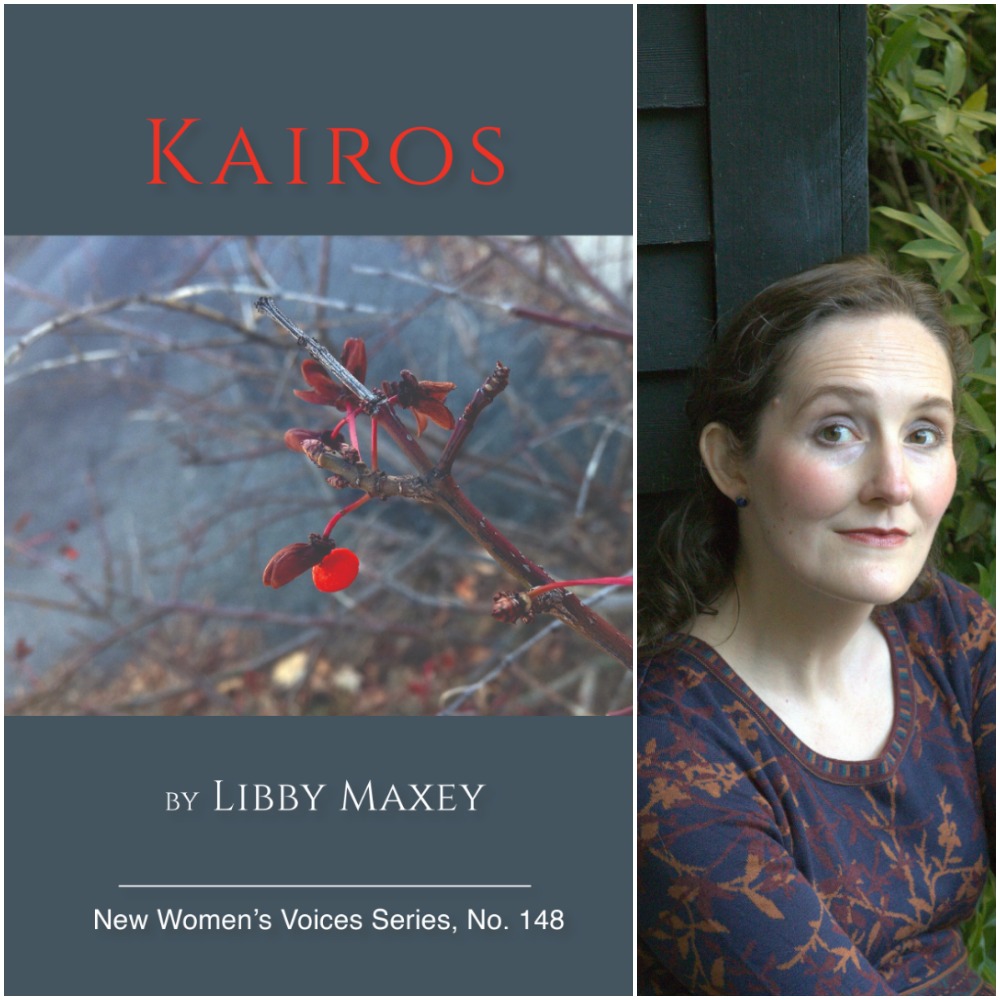Come. Open these wintry pages and slip on “music’s warmest coat.” Read these tidy sonnets, wrapped with precision, and ruminate on ways the senses speak to intimacy, mortality, and geography. With skill and grace, Libby Maxey crafts a version of our world where “leaves are bickering relics in the street” and “each gliss / of swithering breeze might have been prophecy.” This award-winning collection is a gift of sound and contemplation. We need these enduring words in this ageless form. Kairos is, after all, perfect timing.
–Christine Stewart-Nuñez, author of Untrussed (University of New Mexico Press) and Bluewords Greening (Terrapin Books)
In her collection of sonnets, Libby Maxey often illuminates spaces that are secluded, abandoned, or otherwise unsung. The formal poetic landscapes she has carefully designed achieve a striking blend of constraint and vibrancy. As she writes in one piece, “I sing by numbers, measured breath, each note / A contoured shape.” These verses surprise and shimmer with gorgeous vocabulary, each a well-crafted gem that resists the formulaic. The poet alludes to Dickinson and contemplates classical subjects such as Penelope as adeptly as she considers concrete and cows, snowplows and sulfur, fieldstone and fair food. Whether mundane or celestial, Maxey’s lines are always smart and beautiful. Concerned with the passage of time—upon the natural world, upon the domestic terrain of marriage and children, upon the muse—these sonnets celebrate more than they mourn. The poems in Kairos take a stand for continuity and for paying attention; each a short song of harnessed meter and rhyme, “How quick they bloom / And spark.”
–Rebecca Hart Olander, editor/director of Perugia Press
Libby Maxey’s poems are antiphons of thought/emotion and design/mysticism in perfect accord. Few poets these days are brave enough to yoke their talent to form. Libby does this exquisitely; she invites the words themselves to do half the work, enhancing and elevating the meaning of chosen places, relationships, situations. She asks in the first poem, “Do you know all my patterns and designs? / Or how I titivate the syntax of / The moment with an heirloom comb?” Libby’s subjects are often homely, diurnal and immediate, passionately her own, yet resonant. Her epistle, “Pas de Deux”, inquires, “Do you not find your name is more your own / When in my hand?” Neither rhyme nor meter is ever forced in these pages. Rather, the reader is affirmed by the rightness of poetic phrasing, verbal inspiration. Libby’s formalism includes metaphors of subtle brilliance, and through the breadth and daring of her vocabulary, we celebrate the lost gods of our language. The variety—and cohesion—of these poems create a true kairos, an opportune moment in the span of poetry.
–Joanne Clarkson, author of The Fates (Bright Hill Press)






Reviews
There are no reviews yet.